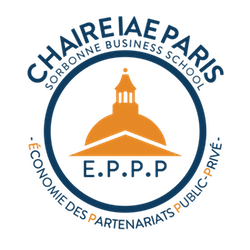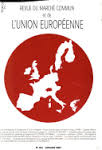Posts de Stéphane Saussier
Discretion and Efficiency in Public Procurement: Evidence from France
Numéro: 2012-9 Lisa Chever et John Moore (Chaire EPPP) Abstract : The new European legislative proposals on public procurement suggest widening the possibility for public buyers to use negotiated procedures with publication. Such procedures have been available in France for work contracts up to 5 million euros since 2004. Yet, their impact on public procurement efficiency is still to be assessed. We…
Lire la suiteTo allot or not to allot public services? An incomplete contract approach
L’article de Julie de Brux et Claudine Desrieux intitulé « To allot or not to allot public services? An incomplete contract approach » vient d’être publié dans le dernier numéro de la revue European Journal of Law and Economics.
Efficiency and Equity in Two-Part Tariffs: The Case of Residential Water Rates
Numéro: 2012-8 Efficiency and Equity in Two-Part Tariffs: The Case of Residential Water Rates Simon Porcher (IAE Paris) Abstract: As first noticed by Coase (1946), a standard result in utility regulation is that efficiency requires two-part tariffs with marginal prices set to marginal costs and fixed fees equal to each customer’s share of fixed costs. Residential…
Lire la suiteDo Markets Reduce Prices?
Numéro: 2012-7 Do Markets Reduce Prices? Simon Porcher (IAE Paris) Abstract: This paper looks at the reasons for and the results of the make-or-buy decisions in local public services, with specific regards to its possible effects on price and other performance determinants. It uses a rich city-level dataset of water utilities in France for several years. We…
Lire la suiteL’efficacité des contrats de partenariat en France : Une première évaluation quantitative
Numéro: 2012-6 L’efficacité des contrats de partenariat en France : Une première évaluation quantitative Phuong Tra Tran et Stéphane Saussier (Chaire EPPP) Abstract: Ce travail a été réalisé par la chaire Economie des Partenariats Public Privé de l’Institut d’Administration des Entreprises de Paris Sorbonne, avec le soutien de la Mission d’appui aux Partenariats Public Privé (MaPPP). Il…
Lire la suiteWater under the Bridge: City Size, Bargaining Power, Prices and Franchise Renewals in the Provision of Water
Numéro: 2012-5 Water under the Bridge: City Size, Bargaining Power, Prices and Franchise Renewals in the Provision of water Eshien Chong (Chaire EPPP), Stéphane Saussier (Chaire EPPP), Brian S. Silverman (Rotman Business School, U. of Toronto) Abstract: Since Williamson’s 1976 study of franchise bidding for natural monopolies, there has been extensive debate concerning the degree to which…
Lire la suiteTransposition de la « Directive défense » : Abistis, dulces caricæ?
Transposition de la « Directive défense » : Abistis, dulces caricæ?
La garantie de la souveraineté de l’Etat implique l’indépendance nationale. En 1958, le Constituant a confié la garantie de l’indépendance nationale au Président de la République[2], comme pour mieux souligner les liens étroits qui unissent l’indépendance nationale et la souveraineté de l’Etat. La République française ne saurait être obligée par une quelconque norme qui lui serait exogène[3] ou commandée par un Etat tiers et il est de la responsabilité du chef de l’Etat d’y veiller.
Lire la suite
The political side of public utilities: how opportunistic behavior and yardstick competition shape water prices in Austria
Numéro: 2012-4 The political side of public utilities: how opportunistic behavior and yardstick competition shape water prices in Austria Michael Klien (Chaire EPPP) Abstract: This paper studies the effect of politics on water prices in Austria. When public utilities are under political control, price setting may be affected by political incentives. Besides classical theories like the…
Lire la suiteCorporatization and the behavior of public firms: how shifting control rights affects political interference
Numéro: 2012-3 Corporatization and the behavior of public firms: how shifting control rights affects political interference Michael Klien (Chaire EPPP) Abstract: As an alternative to privatization, corporatization implies a shift of control rights from politicians to managers while ownership remains public. Even though corporatized firms are fairly common – both in Europe and the US – little…
Lire la suiteTiming tariff increases over the electoral cycles : an empirical investigation of political decision making
Numéro: 2012-2 Timing tariff increases over the electoral cycles : an empirical investigation of political decision making Michael Klien (chaire EPPP) Abstract: This paper uses data on municipal tariff decisions to analyze the effect of elections on policy choices. Like existing research, the results confirm the existence of a political cycle in fiscal policy. More importantly, this paper…
Lire la suite

